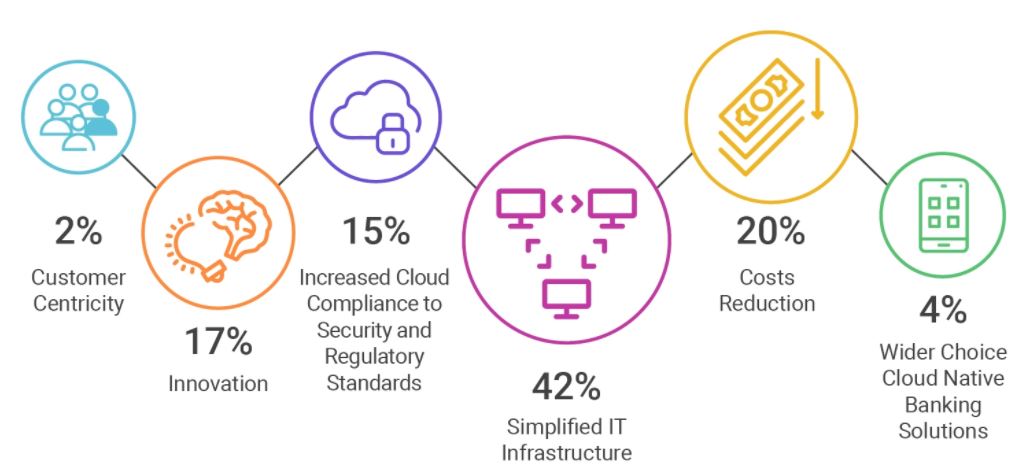Over the last couple of years, cloud computing has become one of the most prevalent technologies in modern society. It is the type of service where the provider originally lends out computer system sources. Cloud computing is an accelerating trend, especially when it comes to fintech, where it is driven by the powerful impact that answers many of the financial sector’s requirements. The cloud has bought numerous advantages into the field of technology. According to the 2020 IDG cloud computing study, more organizations are not only moving their infrastructure to the cloud, but over 55% say they are using multiple public clouds. Among all the other sectors, the banking industry has been one of the most prominent ones that have implemented cloud technology. It’s not surprising how businesses are drawn to this brilliant new technology, considering the vast benefits it provides such as ease of use, accessibility, and fast deployment.
Some of the most common issues faced by FinTech and banking include missed out targets, long fund-raising cycles, and increasing losses. This is mainly due to the mismanagement of the lending lifecycle. These are the issues that FinTech and Banking face:
Nowadays, companies and organizations need to be more careful when it comes to security. Cybercrime is on the rise and unfortunately, FinTech and banking companies are the hackers’ most focused targets. FinTech companies now have more valuable data to protect than ever before.
Organizations that utilize outmoded business management applications or different systems will not be able to keep up with an increasingly focused world on digital technologies.
Financial institutions that use the latest technology, particularly cloud applications have an additional boost in the digital transformation race and can innovate faster. Successful FinTech companies cannot endure without proficient IT resources.
The industry regulations are the most common challenges because FinTech and the banking industry have hurdles due to the dramatic rise in the regulatory fees, ever since the 2008 financial crisis.

Image Source: bobsguide
There are various scopes of cloud computing in banking and FinTech. They are-
Traditional banks’ IT infrastructure is deeply capital-intensive. Cloud services enable saving costs thanks to greater capacity as related to server-based applications.
One of the other scopes of cloud computing on banking and Fintech is that it helps banks mitigate risks related to redundancy, capacity, and resiliency. They are competent to quickly identify various threats and vulnerabilities.
Migration to the cloud enables banks to relocate resources from IT administration to variation. Thus, they’ll become more prolific and flexible in their internal and external processes. Cloud-based answers present banks with more extensive space for transformation and satisfying the requirements of their customers.
This is regarded as one of the best benefits of cloud computing in banking and Fin-Tech. This is because it decreases all the capital expenditure of buying and setting up hardware and software at data centers.
Another great advantage of cloud computing is that it is highly reliable. It gives a complete data backup to information. Data can also be obtained from various sites easily. And the data which is saved in the cloud is well encrypted to eliminate all sorts of security threats in banks.
Enabling easy use of data is another benefit of cloud computing services. A huge amount of data in banks is pretty feasible to use. Cloud computing also assists in banking and financial services to handle different demands in the banking world.
When it comes to productivity, it means that cloud computing eliminates all the unnecessary time of racking and stacking data in the banks. Hence, increasing productivity. Almost every task in the bank which is related to the information will be handled by software through cloud computing.
Here, at ThinkPalm, we offer a combination of cloud consultation, cloud application development, cloud migration, and deployment services with seamless integration options. As part of our cloud infrastructure management service, our engineers will work closely with your enterprise to implement a cloud IT Infrastructure based on your applications and services as well as the available bandwidth. From cloud consultation to deployment, we understand the customer business requirements and will define the cloud specification, increasing collaboration as well as productivity.
So, partner with us at ThinkPalm and let’s achieve milestones together.